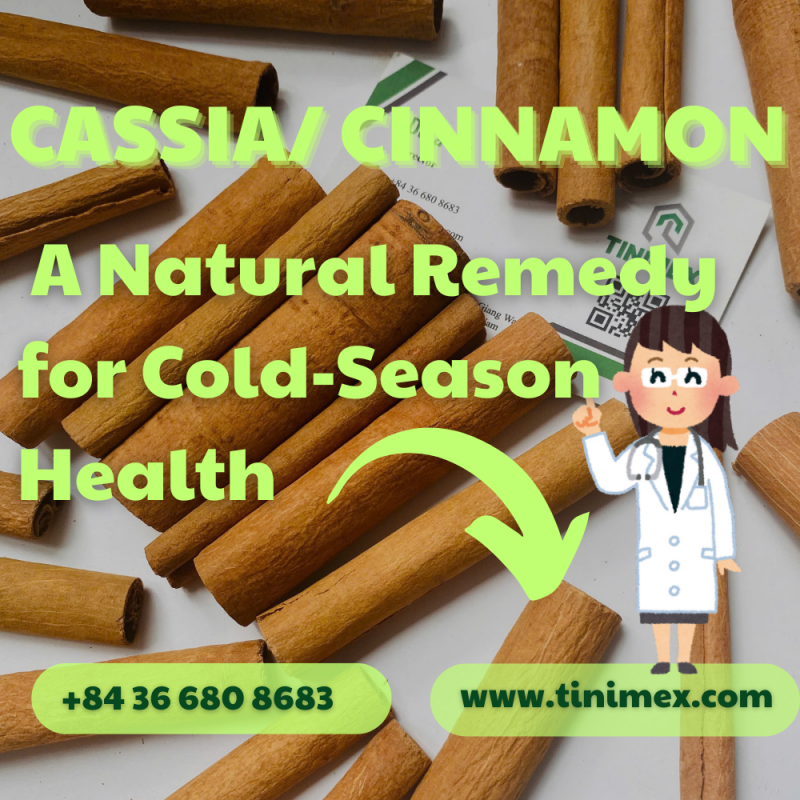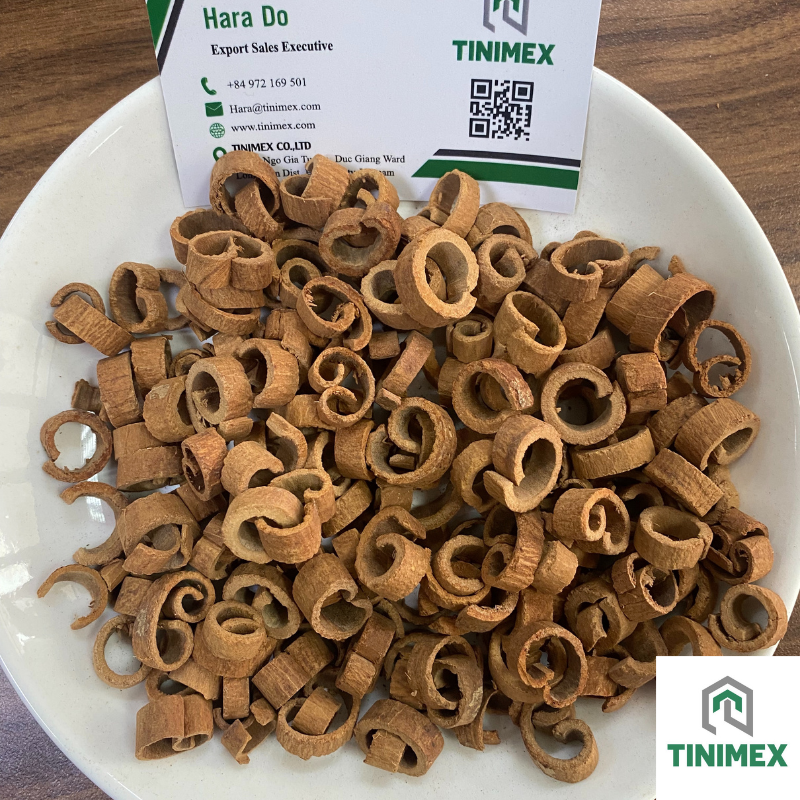Got a Cold? Try Cinnamon – A Natural Remedy for Cold-Season Health
As the cold season creeps in, so do the sniffles, sore throats, and pesky colds that seem to linger. While over-the-counter medications can help, many people are turning to natural remedies to boost their immunity and feel better faster. One such remedy that’s been gaining attention is cinnamon, a warm, aromatic spice that’s more than just a kitchen staple. Packed with health benefits, cinnamon has been used for centuries in traditional medicine to combat colds and support overall wellness. In this article, we’ll explore why cinnamon is a powerful ally during the cold season, how to use it effectively, and the science behind its healing properties.

Why Cinnamon? The Science Behind Its Healing Powers
Cinnamon isn’t just a flavorful addition to your morning oatmeal or holiday cookies—it’s a powerhouse of health benefits. Derived from the bark of the Cinnamomum tree, this spice has been used in Ayurveda, Traditional Chinese Medicine, and other healing practices for centuries. But what makes cinnamon so effective for colds and overall health during the chilly months?
Rich in Antioxidants: Cinnamon is loaded with polyphenols, powerful antioxidants that protect your body from oxidative stress caused by free radicals. During a cold, your immune system is under attack, and antioxidants help strengthen it by reducing inflammation and supporting cellular health. Studies show that cinnamon ranks high on the ORAC (Oxygen Radical Absorbance Capacity) scale, making it one of the most antioxidant-rich spices available.
Antibacterial and Antiviral Properties: Colds are often caused by viruses, and cinnamon’s natural compounds, like cinnamaldehyde, have been shown to possess antibacterial, antiviral, and antifungal properties. These properties can help fight off the pathogens that cause respiratory infections, sore throats, and other cold symptoms. A 2017 study published in Microbial Pathogenesis found that cinnamon essential oil could inhibit the growth of certain bacteria and viruses, making it a promising natural remedy.
Anti-Inflammatory Benefits: Inflammation is a common response to colds, leading to symptoms like sore throats and congestion. Cinnamon’s anti-inflammatory compounds can help reduce swelling in the respiratory tract, easing discomfort and promoting faster recovery. By soothing inflamed tissues, cinnamon can make those miserable cold symptoms feel more manageable.
Warming Properties: In traditional medicine, cinnamon is considered a “warming” spice, meaning it helps increase circulation and generate body heat. This makes it particularly useful during the cold season, as it can help you stay warm and support your body’s natural defenses against chilly weather.
How Cinnamon Helps Fight Colds: Now that we know the science behind cinnamon’s benefits, let’s dive into how it can specifically help you combat a cold. Whether you’re looking to prevent a cold or speed up recovery, cinnamon offers a range of benefits.
Boosts Immunity: A strong immune system is your best defense against colds. Cinnamon contains essential nutrients like manganese, iron, and calcium, which support overall health. Its antioxidants also help neutralize free radicals, reducing the strain on your immune system and allowing it to focus on fighting off viruses.
Relieves Congestion: The warming properties of cinnamon can help clear nasal congestion, one of the most frustrating cold symptoms. Inhaling the steam from cinnamon-infused hot drinks or using cinnamon essential oil in a diffuser can loosen mucus and make breathing easier.
Soothes Sore Throats: Cinnamon’s anti-inflammatory and antimicrobial properties make it a great remedy for sore throats. Gargling with cinnamon-infused water or sipping cinnamon tea can reduce throat irritation and kill bacteria that may be contributing to the discomfort.
Supports Digestion: When you’re sick, your digestive system can take a hit, leading to nausea or loss of appetite. Cinnamon aids digestion by stimulating the production of digestive enzymes, helping you feel more comfortable and energized even when you’re under the weather.

How to Use Cinnamon for Cold Relief
Ready to harness the power of cinnamon to fight your cold? Here are some practical, easy-to-follow ways to incorporate this spice into your routine. Always consult with a healthcare professional before trying new remedies, especially if you have allergies or medical conditions.
1. Cinnamon Tea
One of the simplest and most effective ways to use cinnamon is by brewing a soothing cup of cinnamon tea. This warm drink not only hydrates you but also delivers cinnamon’s healing compounds directly to your system.
How to Make Cinnamon Tea:
- Boil 1 cup of water.
- Add 1 teaspoon of ground cinnamon or 1 cinnamon stick.
- Let it steep for 10–15 minutes.
- Strain (if using a cinnamon stick) and add a teaspoon of honey for extra soothing and antimicrobial benefits.
- Sip slowly to relieve sore throats and congestion.
Pro Tip: Add a slice of fresh ginger or a pinch of turmeric for an extra immune-boosting kick.
2. Cinnamon and Honey Paste
The combination of cinnamon and honey is a time-tested remedy for colds. Honey is a natural cough suppressant and has its own antimicrobial properties, making it a perfect partner for cinnamon.
How to Make Cinnamon-Honey Paste:
- Mix 1 teaspoon of ground cinnamon with 1 tablespoon of raw, organic honey.
- Take 1–2 teaspoons of the mixture daily, either directly or spread on toast.
- Avoid giving honey to children under 1 year of age due to the risk of botulism.
This remedy is great for soothing sore throats and boosting immunity.
3. Cinnamon Steam Inhalation
For nasal congestion, try steam inhalation with cinnamon. The warm steam combined with cinnamon’s aroma can help clear your airways and reduce sinus pressure.
How to Do It:
- Boil 2 cups of water and pour it into a bowl.
- Add 1–2 drops of cinnamon essential oil or a pinch of ground cinnamon.
- Lean over the bowl, cover your head with a towel, and inhale the steam for 5–10 minutes.
- Be cautious with hot water to avoid burns.
4. Cinnamon in Soups and Broths
Adding cinnamon to warm soups or broths can enhance their flavor while delivering health benefits. Chicken soup with a pinch of cinnamon not only tastes delicious but also helps fight off cold symptoms.
Recipe Idea: Cinnamon-Spiced Chicken Soup
- Prepare a classic chicken soup with vegetables and broth.
- Add ½ teaspoon of ground cinnamon during the cooking process.
- Garnish with fresh herbs like parsley or cilantro for added flavor.
5. Cinnamon Smoothies
For a nutrient-packed option, blend cinnamon into a smoothie. Combine it with immune-boosting ingredients like oranges, spinach, or berries for a delicious and healthy treat.
Simple Cinnamon Smoothie Recipe:
- Blend 1 banana, 1 cup of orange juice, ½ cup of Greek yogurt, and ½ teaspoon of ground cinnamon.
- Add a handful of spinach or frozen berries for extra vitamins.
- Drink daily to support your immune system.
Choosing the Right Cinnamon
Not all cinnamon is created equal. There are two main types of cinnamon available: Ceylon cinnamon (true cinnamon) and Cassia cinnamon (common cinnamon). Here’s what you need to know:
- Ceylon Cinnamon: Known as “true cinnamon,” it has a milder, sweeter flavor and contains lower levels of coumarin, a compound that can be harmful in large doses. Ceylon is ideal for regular consumption, especially for medicinal purposes.
- Cassia Cinnamon: More common and less expensive, Cassia has a stronger flavor but higher coumarin content. Use it sparingly to avoid potential side effects.
For cold remedies, opt for Ceylon cinnamon if possible, especially if you plan to consume it regularly. Always purchase from reputable sources to ensure quality and purity.
Precautions and Side Effects
While cinnamon is generally safe for most people, there are a few precautions to keep in mind:
- Moderation is Key: Consuming large amounts of cinnamon (especially Cassia) can lead to coumarin toxicity, which may harm the liver. Stick to 1–2 teaspoons per day.
- Allergies: Some people may be allergic to cinnamon. If you experience symptoms like itching, swelling, or difficulty breathing, stop use and seek medical attention.
- Medication Interactions: Cinnamon may interact with certain medications, such as blood thinners or diabetes drugs. Consult your doctor if you’re on medication.
- Pregnancy and Breastfeeding: Pregnant or breastfeeding women should consult a healthcare provider before using cinnamon medicinally.
Other Natural Remedies to Pair with Cinnamon
To maximize your cold-fighting arsenal, consider combining cinnamon with other natural remedies:
- Ginger: Known for its anti-inflammatory and immune-boosting properties, ginger pairs wonderfully with cinnamon in teas or soups.
- Turmeric: This anti-inflammatory spice can enhance cinnamon’s effects and add a vibrant flavor to your remedies.
- Garlic: A natural antibiotic, garlic can help fight infections when added to broths or taken as a supplement.
- Elderberry: Rich in antioxidants, elderberry syrup or tea can complement cinnamon’s immune-boosting benefits.
Lifestyle Tips for Cold-Season Health
While cinnamon is a fantastic natural remedy, it works best when combined with healthy habits. Here are some additional tips to stay healthy during the cold season:
- Stay Hydrated: Drink plenty of water, herbal teas, and broths to keep your body hydrated and flush out toxins.
- Get Enough Rest: Sleep is crucial for immune function. Aim for 7–9 hours of quality sleep per night.
- Eat Nutrient-Rich Foods: Focus on fruits, vegetables, and whole grains to provide your body with the vitamins and minerals it needs.
- Practice Good Hygiene: Wash your hands frequently and avoid touching your face to prevent the spread of viruses.

Conclusion: Embrace Cinnamon for a Healthier Cold Season
Cinnamon is more than just a cozy spice—it’s a natural, effective remedy for combating colds and boosting your health during the chilly months. From soothing sore throats to clearing congestion, this versatile spice offers a range of benefits backed by science and tradition. By incorporating cinnamon into teas, soups, smoothies, or even steam inhalation, you can harness its healing powers and feel better faster.
Next time you feel a cold coming on, reach for cinnamon instead of just relying on over-the-counter meds. With its antioxidant, antibacterial, and anti-inflammatory properties, cinnamon is a must-have in your cold-season toolkit. Try the recipes and tips above, and let this warm, fragrant spice help you stay healthy and cozy all winter long.



